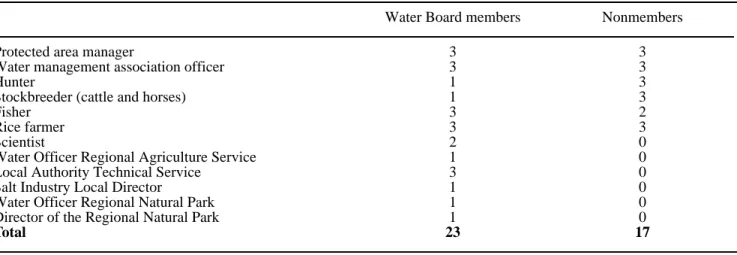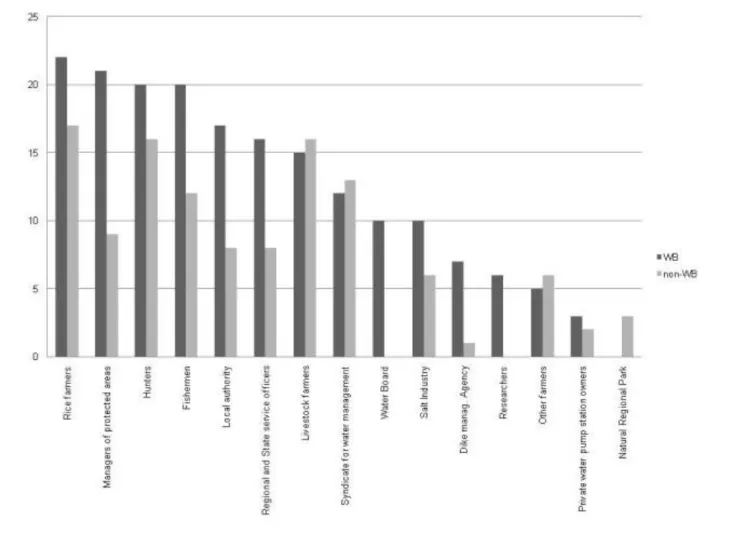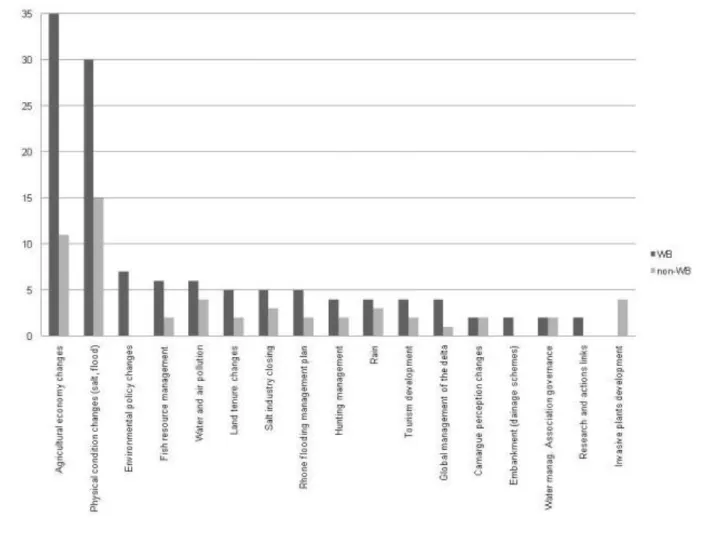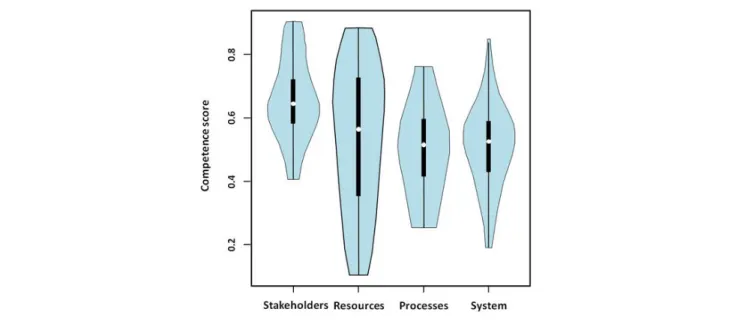Water management in the Camargue biosphere reserve: insights from comparative mental models analysis
Texte intégral
Figure




Documents relatifs
This treatment gap needs urgent attention from all of us, and it is gratifying to see some countries, such as Egypt, Islamic Republic of Iran and Pakistan, implementing mental
signaling axis controls cell cycle, meristem activity and plant growth in Arabidopsis. Function and regulation of macroautophagy in
performances of 2D gels for the analysis of membrane proteins was still very fragmentary and thus optimistic. At that times, it was still possible to claim for a better analysis
Nous avons trait´ e dans cette th` ese le probl` eme de la mod´ elisation, de la r´ eduction et l’analyse de mod` eles de tels r´ eseaux biologiques qui sont g´ en´ eralement
Finally, quantitative proteomic analysis showed that this recognition involves the RBD2 domain that is strongly cross-linked to the central loop of the G4 DNA
If the mental model construct is to be used in NRM as a means to explore people’s cognition of environment- related systems, further research is necessary to enhance
We believe that on the Cu(100) surface the essential remaining point is to correct the estimation of the parameters which control the line shape: the asymmetric ZBA in the
It does matter, however, that syntactic theories of deduction are explicitly committed to the coherence conception of truth [Fodor 1980], [Rips 1986], [Rips 1990], whereas




